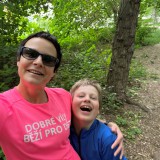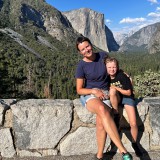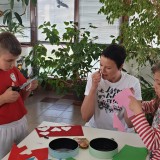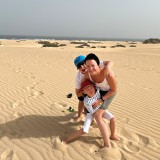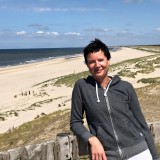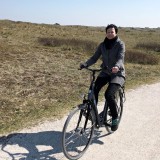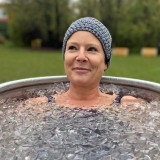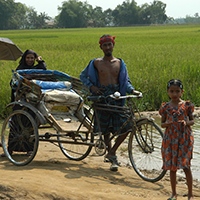Katka, our new BanglaKids Coordinator
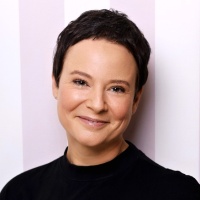
Kateřina Halászová, the new coordinator of the BanglaKids programme, is a "good fairy" and a mother of two beautiful children. She has lived in the Netherlands, likes challenges, knows how to listen, and loves children who are not good at something. In January, she will replace long-time coordinator Šárka Hejnáková, who will be working with Czech children as a teaching assistant. In this interview we introduce Katka to all our donors.
Where do you come from and what attracted you to the position of BanglaKids coordinator?
I used to work for a small non-profit that worked with children in orphanages. We were trying to improve their stay in the homes, to do what the educators couldn't do. With other volunteers, we played with them, tutored them, planned various weekend getaways, summer camps and many other events for them.
The position of BanglaKids coordinator is a matter of the heart for me. It's about children who are deprived. They don't have what they should have, and that's not fair. I am excited to move from improving the lives of children in orphanages in the Czech Republic to helping improve the lives of children in Bangladesh.
It says "I'm a good fairy" on your shirt. Are you a good fairy?
The Good Fairies is the name of the organization I come from. The kids loved it. We were good fairies and also adult friends of the children in the homes. It worked at home, too. But now the children tell me I'm a former good fairy. :)
You lived in the Netherlands for over a year. What took you there and what was it like for you?
My husband's work took us there. We lived in Amsterdam and it was a wonderful experience. The atmosphere of life there is different from ours. We rode our bikes everywhere. It's the best way of transportation in terms of time. You don't have to worry about getting stuck in traffic like here in Prague. You know, it takes 20 minutes on a bike, and in 20 minutes you'll actually be there. Traveling by bike is much easier and more pleasant.
And it's ridden all year round. We just haven't seen snow there in the winter. But there were icy roads, so we saw a few crashes. Fortunately, nothing dangerous.
Both of our children went to private school and it was actually their very first experience with school. They were taught in English and met children of different nationalities in the classroom. And even though they had a language barrier at first, it was incredible to see how quickly they talked and started to function in that multicultural team.
What can a Czech learn from the Dutch and what can the Dutch learn from her?
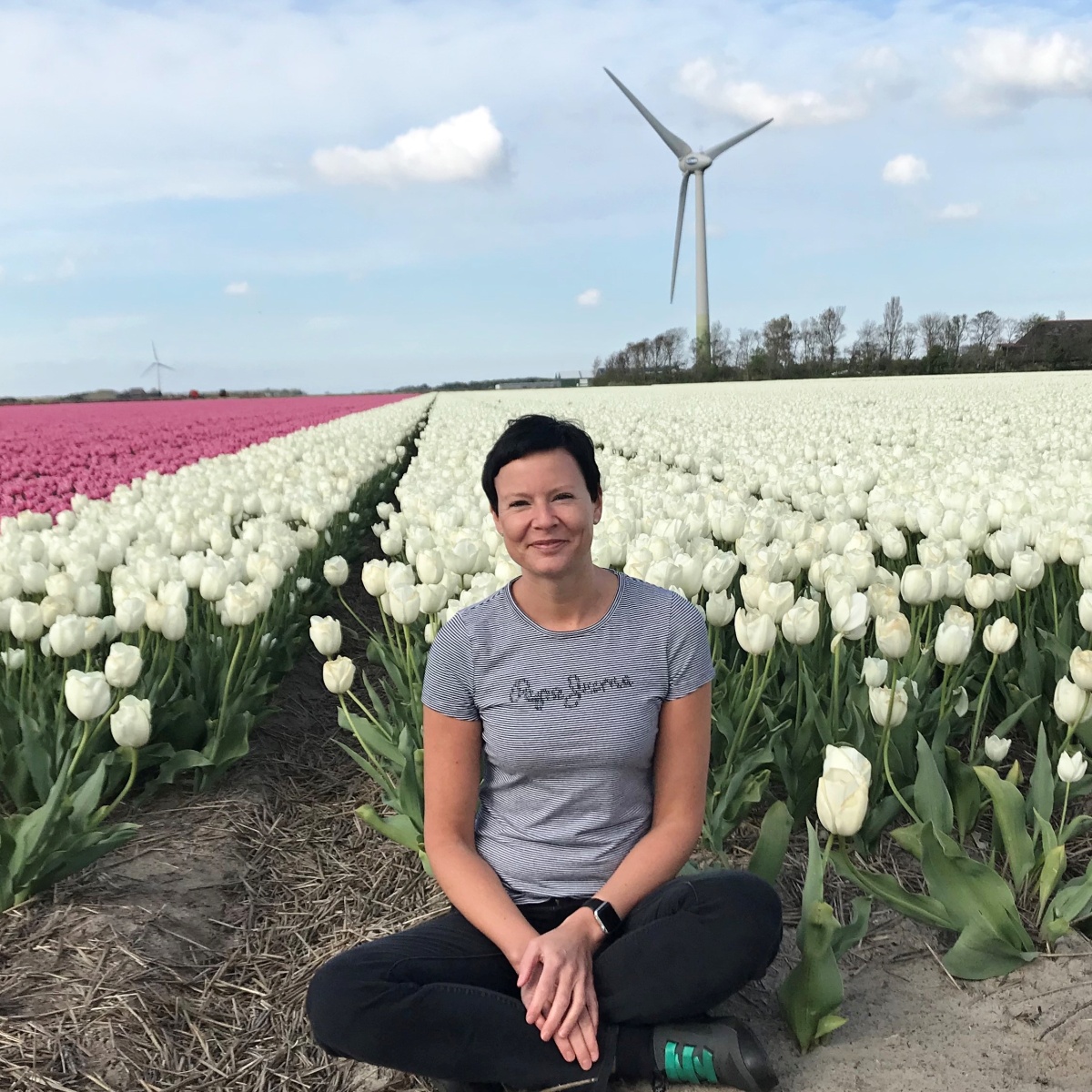 What we're definitely missing here is just simply to stop. In Amsterdam, they have a lot of parks, and when people are cycling home from work, they just lie down in the grass for a while. But it's not like they're looking at their cell phone or meeting someone there. They're just enjoying the sunshine by themselves, which isn't there as much because of the rains. So that kind of " stopping by" at any time of the day, like on the way home from work, we could use that here. Just kind of take our time.
What we're definitely missing here is just simply to stop. In Amsterdam, they have a lot of parks, and when people are cycling home from work, they just lie down in the grass for a while. But it's not like they're looking at their cell phone or meeting someone there. They're just enjoying the sunshine by themselves, which isn't there as much because of the rains. So that kind of " stopping by" at any time of the day, like on the way home from work, we could use that here. Just kind of take our time.
And what could the Dutch learn from me? That's a difficult question... In general, the offer of help itself doesn't work very well there. We've been warned about that. For example if the escalator doesn't work and a mother is dragging 2 suitcases and 2 children up the stairs, none of the passers-by will help her because they expect her to ask for help. And then of course they are happy to help.
The only time this "no help" rule was broken was when someone fell off their bike. They ran right up to him and checked to see if the person was okay.
Katka, you were involved in the education and development of children with specific learning and behavioral disorders. Please tell us about this issue and your motivation for focusing on it.
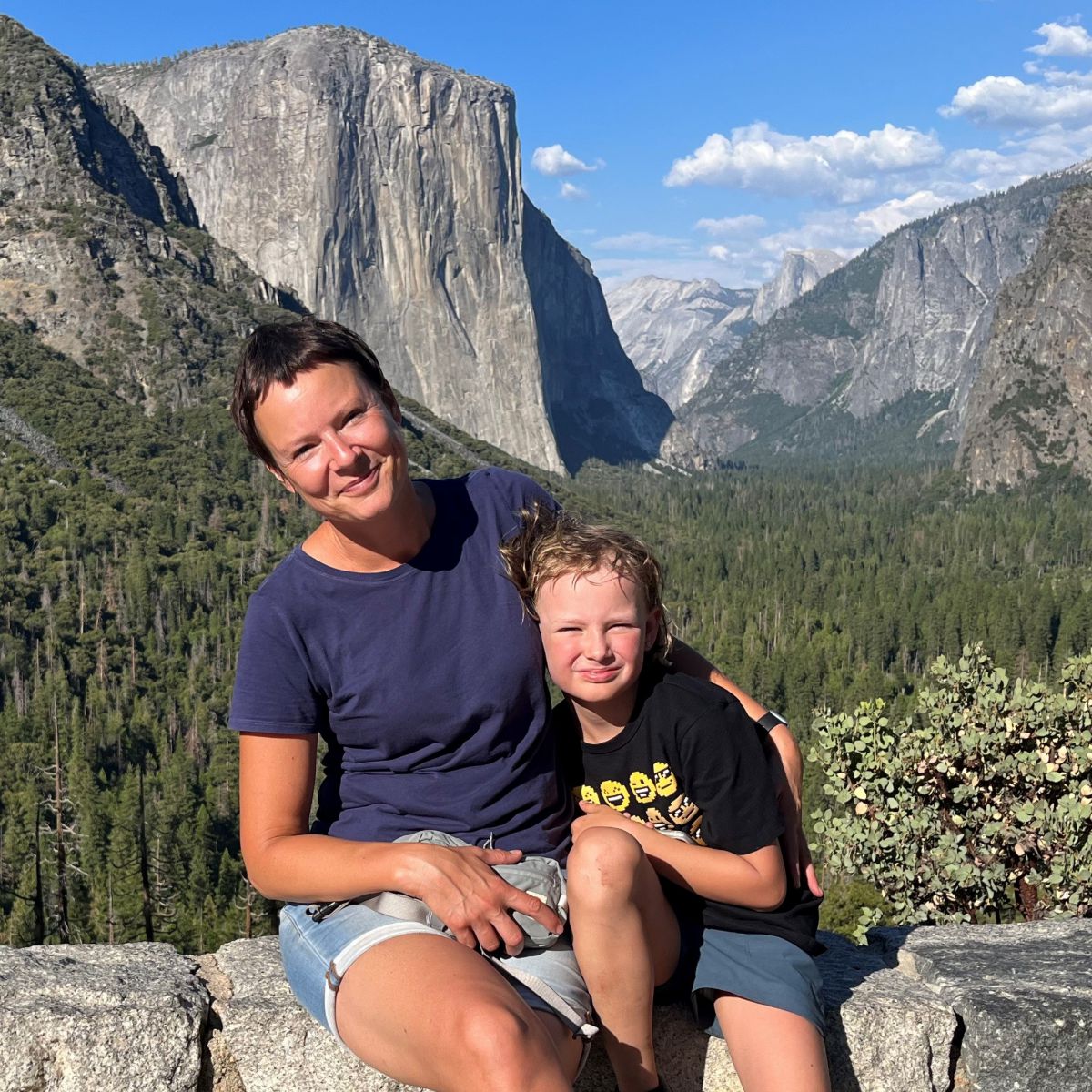 I went for it because we have a child like that at home. From a mother's point of view, I was wondering how best to help ease him into school. There were various options, methods and courses. And when we saw a therapist, a psychologist or a special educator, I always asked a lot of questions. I was interested and got a lot of information. I met mothers who were dealing with similar problems. We exchanged experiences and I found out that I knew the most in that group and that I really enjoyed helping such children.
I went for it because we have a child like that at home. From a mother's point of view, I was wondering how best to help ease him into school. There were various options, methods and courses. And when we saw a therapist, a psychologist or a special educator, I always asked a lot of questions. I was interested and got a lot of information. I met mothers who were dealing with similar problems. We exchanged experiences and I found out that I knew the most in that group and that I really enjoyed helping such children.
My main goal was to make starting school as easy as possible for the children. So that after preschool it wouldn't be too much of a bump. So that they don't resent school because it's going to be hard for them because they're going to be worse off than their classmates. I did consultations for other parents and their children, taking them through neurodevelopmental stimulation and the Feuerstein method.
Then I led a club for preschoolers in a nursery in Prague. And I enjoyed that, it was a nice period.
In the Netherlands, I continued working with preschoolers in a Czech school that was open every Sunday for Czech children living in and around Amsterdam.
What I love about you, Katka, is that you light up when you say the word children. What attracts you to the world of children and what can adults learn from children?
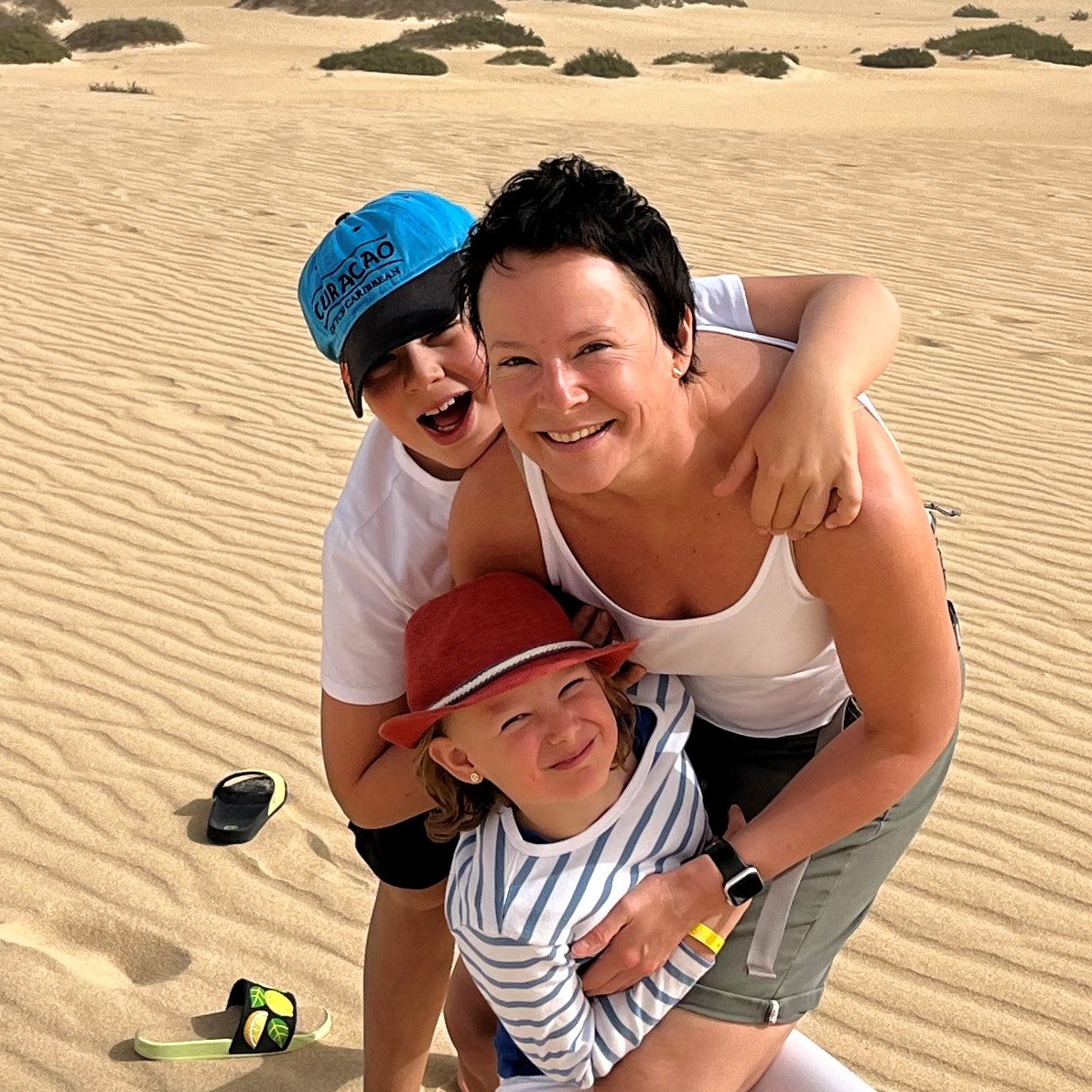 I don't think I can specify. I certainly wasn't a glowing little girl who, for example, has been overjoyed at every baby since she was 15. Not at all. I guess it just came with my children.
I don't think I can specify. I certainly wasn't a glowing little girl who, for example, has been overjoyed at every baby since she was 15. Not at all. I guess it just came with my children.
Well, what could we learn from children? Maybe their easy-going attitude, not worrying about things that aren't that important. The important thing is to push yourself in what your child is good at, to focus on the areas where they excel, and instead spend less time on what they need more practice in, where they have gaps. Often, unfortunately, it's the other way around.
Your love for children has one beautiful and tangible result. In the spring, you will have a children's book published by Albatros. How did it come about and what is it about?
The book was written in the Netherlands. It's about two children whose holiday plans don't quite work out. However, thanks to one spell, they manage to travel to many different countries during their holidays.
I tried to put real facts in the book, geographical and cultural facts, so that the children could learn something about the country. And then important things that I wanted to pass on, not only to my children. Like nature protection, for example, or one chapter is from Africa, so that the children know that not everybody is as well off as we are here in Europe. I also included mindfulness or working with a mistake so that children don't see it as the biggest disaster. So in addition to geography, I tried to point out in a practical way in the book the important things that I think are worth passing on to children.
The book will be called "The Best Summer Vacation Ever."
Katka, we know you are an organizational and communication talent, and a bit of a perfectionist. What advantages and pitfalls do you see in perfectionism?
Like if I get an assignment, I have everything I'm supposed to have, and I know everything I'm supposed to know, you can be sure I'm going to do it to the best of my abilities and capabilities.
But on the other hand, it might take up my time somewhere that doesn't need to be perfect. Or at home, I'm holding on to things that aren't as important to other members of the household.
Like house cleaning. I imagine my kids' room clean-up differently than it is usually done by children. But that's probably how most moms feel. We have the bar set higher than our children. :)
What do you do in your free time?
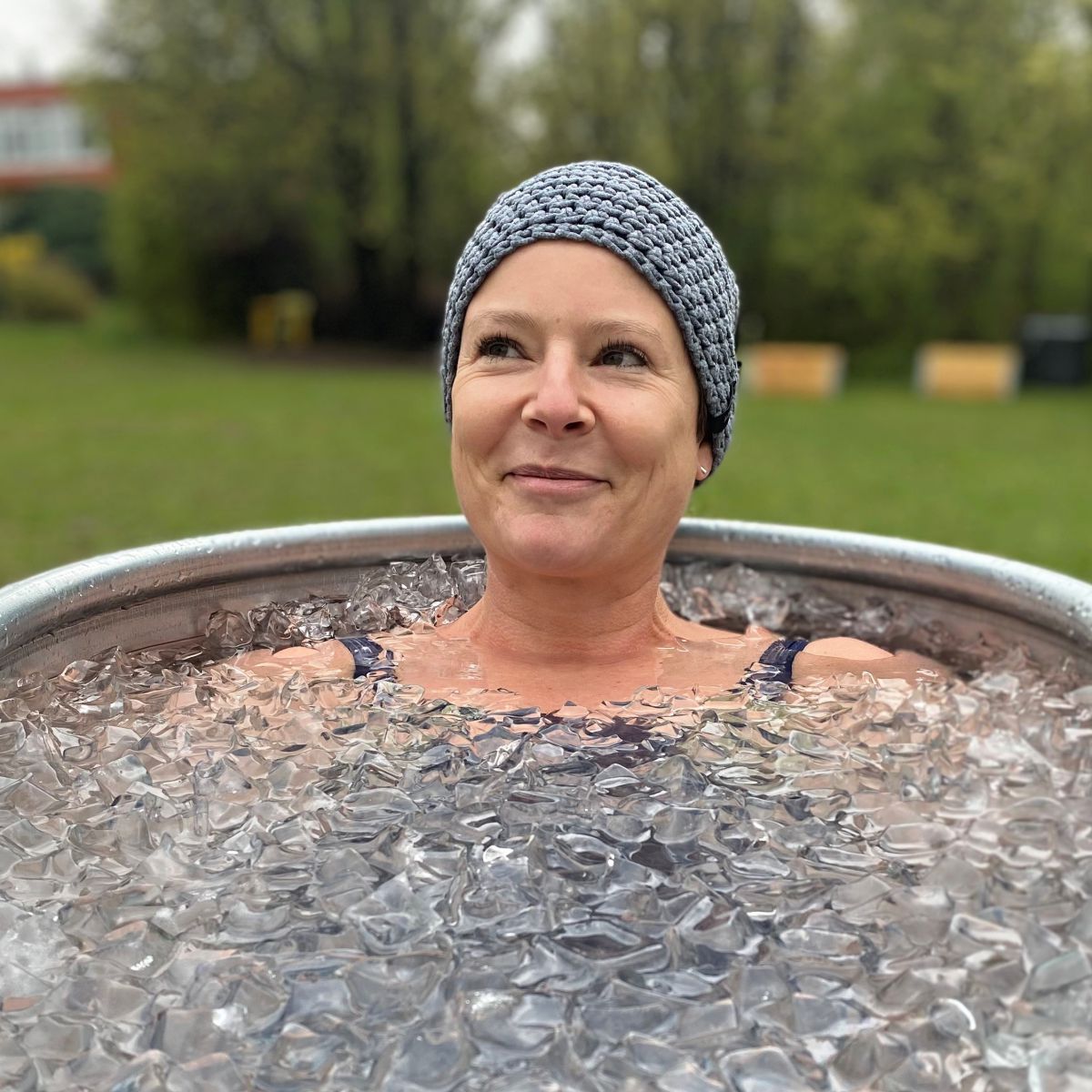 I don't have a lot of free time, because I try to devote myself to my family and children. And when I can, I do yoga or go swimming or sometimes running.
I don't have a lot of free time, because I try to devote myself to my family and children. And when I can, I do yoga or go swimming or sometimes running.
What would you like to bring to the children in Bangladesh through your work and what are you most looking forward to?
I would especially like to continue Šarka's work. I like the idea that we're actually giving children a chance for a better future. That it's not just about them learning to read and write... I'm looking forward to being part of the process that gives children that chance for a better life. And then I'm also looking forward to meeting them in person.
Katka, you have a great amount of empathy and the ability to listen. Where did these beautiful skills come from?
I guess it comes from the fact that I enjoy listening to other people. Their opinions, their experiences... It's rewarding for me and I believe it's good for others to have someone to listen to them.
Thank you for the interview.
